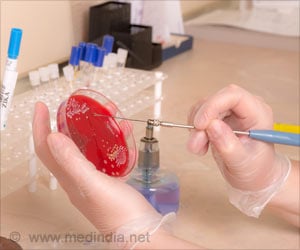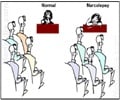The sponge consisting of carbohydrates removes pathogenic antibodies that causes anti-MAG neuropathy from the bloodstream.
Highlights
- Patients with anti-MAG neuropathy predominantly suffer from sensory loss in their arms and legs, neuropathic pain.
- Anti-MAG antibodies have long been recognized as the //cause of the disease. But no approved treatment is available to reduce autoantibodies.
- Customized synthetic glycopolymers act like a sponge on the harmful autoantibodies and neutralize their effect.
Patients with anti-MAG neuropathy predominantly suffer from sensory loss in their arms and legs, neuropathic pain, and a loss of coordination that can substantially impair mobility. Through progressive damage to the peripheral nerves, the patients become increasingly disabled in their day-to-day lives until they require full-time care.
The disease is diagnosed based on the presence of blood serum autoantibodies that bind to the myelin-associated glycoprotein (MAG) in the peripheral nervous system. These anti-MAG antibodies have long been recognized as the cause of the disease.
Furthermore, a reduction of the antibody concentration in the blood leads to an improvement in the symptoms. But no approved treatment is available that specifically targets these autoantibodies.
Current therapies are directed to suppress the immune response; they are inefficient and in some cases cause serious side effects.
Basel-based researchers are thus working on a new treatment approach with customized synthetic glycopolymers that act like a sponge on the harmful autoantibodies. The glycopolymer mimicks the section of the MAG protein the anti-MAG antibodies are binding to.
Treatment for other autoimmune diseases
This new treatment method offers significant potential not only for an antigen-specific treatment of anti-MAG neuropathy but also for other antibody-mediated autoimmune diseases.
Currently, only fragmentary knowledge of the antigens in many autoimmune diseases is available. Antigen-specific therapies are therefore very difficult to develop.
"The use of our glycopolymers opens up new possibilities for the treatment of diseases where anti-glycan antibodies play a role," says study director Professor Beat Ernst from the Department of Pharmaceutical Sciences at the University of Basel.
Reference
- Beat Ernst et al., Selective in vivo removal of pathogenic anti-MAG autoantibodies, an antigen-specific treatment option for anti-MAG neuropathy, PNAS (2017) http://www.pnas.org/content/early/2017/04/11/1619386114.abstract.
Source-Medindia















